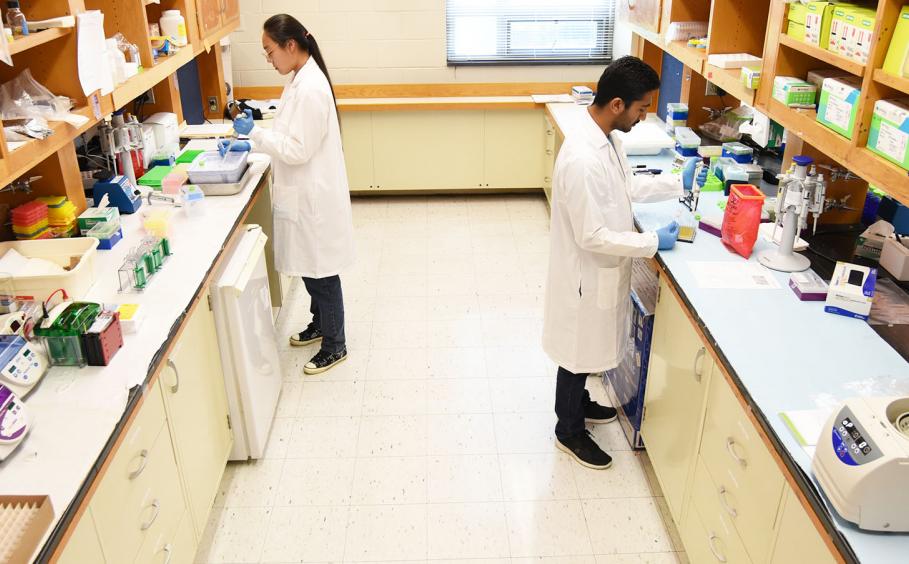-
About
ExploreUp a level (this gets replaced in JS)
-
Strategic Plan
Explore
-
College Overview
Explore
- Dean's Lecture Series
- Environmental Health Sciences
-
Diversity, Equity and Inclusion
Explore
-
Get Involved
Explore
-
People
Explore
-
Achievements
Explore
- Administrative Offices
- Discover HHD
- College News and Events
- Commencement
- Contact Us
-
Strategic Plan
-
Undergraduate
ExploreUp a level (this gets replaced in JS)
-
Getting Started
Explore
-
Student Support
Explore
-
Get Involved
Explore
-
Gain Experience
Explore
-
Careers
Explore
-
Get Connected
Explore
-
Policies and Procedures
Explore
- Summer Session
- Discover HHD
- Visit and Apply
- New Student Orientation Program (NSO)
- Undergraduate News
- Commencement
- Contact Us
-
Getting Started
-
Graduate
ExploreUp a level (this gets replaced in JS)
-
Getting Started
Explore
-
Student Support
Explore
-
Student Profiles
Explore
-
Get Involved
Explore
-
Get Connected
Explore
-
Gain Experience
Explore
- Environmental Health Sciences
-
Diversity, Equity and Inclusion
Explore
-
Commencement
Explore
- Discover HHD
- Admissions
- Contact
-
Getting Started
-
Online & Outreach
ExploreUp a level (this gets replaced in JS)
-
Online Degrees and Programs
Explore
-
Outreach Programs
Explore
-
Short-term Courses
Explore
-
Teaching Support
Explore
- Contact Us
-
Online Degrees and Programs
-
Research
ExploreUp a level (this gets replaced in JS)
-
COVID-19 Response
Explore
-
Researcher Resources
Explore
-
Ongoing Research
Explore
-
Research Units
Explore
-
Diversity, Equity and Inclusion
Explore
- Environmental Health Sciences
-
Get Involved
Explore
-
Stay Connected
Explore
- Discover HHD Research
- Research News and Events
- Contacts
-
COVID-19 Response
-
Alumni
ExploreUp a level (this gets replaced in JS)
-
Become a Member
Explore
-
Resources for Alumni
Explore
-
Building Diversity and Inclusion
Explore
-
Get Involved
Explore
-
Meet Our Volunteer Leaders
Explore
-
Stay Connected
Explore
-
Alumni Achievements
Explore
-
Parents and Family
Explore
-
Donate
Explore
- Alumni News
- Attend an Alumni Event
- Give to HHD
- Update Your Contact Information
- Contact Us
-
Become a Member
-
Contact
Explore
-
Departments
Explore
-
Research Centers
Explore
-
Central Administration
Explore
-
Training and Support
Explore
- Contacts/Directory
Getting Started in Undergraduate Research

Students find or create these opportunities. Much like conducting research, staying passionate and being persistent will reap rewards. Don’t give up!
In paid or volunteer opportunities, there is no registration process for research like there is for classes.
If you do want to receive course credit for your research experience, registration is required. Most departments use a standard course number (e.g., KINES 294 or 494) for all research experiences. Faculty members or staff members in the department will need to add course credit to your course enrollment. Talk to your academic adviser to make sure you are properly enrolled.
Ten steps: Getting started in undergraduate research

Start early
Begin your search at least one semester before you want to begin research.

Identify your interest(s)
Before you jump in, think about what you would like to do, what you want to learn, and what experience you need to meet your post-graduation goals.

Explore HHD research opportunities
Start by looking through department and center websites or by reviewing recent research news. There is an excellent University-wide site that includes a broad array of (though by no means all) undergraduate research opportunities.

Talk to your adviser
Pre-major students should talk to your adviser in the Center for Student Advising and Engagement to discuss specific options that will meet your personal and academic goals as well as any departmental differences. Students who have declared their major can talk with their department academic adviser.

Look for college and department communications
including flyers, email announcements, or “research fairs” where students can talk with faculty and graduate students about research opportunities. Check college and department emails for opportunities.

Review student employment opportunities
Visit Penn State’s Careers web site and click on “Penn State Student” to find work opportunities, including research for students. These positions allow students to work in lab environments and to gain valuable experience with basic lab skills or to work on research projects of all types.

Research skills course work
Consider enrolling in classes that teach relevant research skills. Courses that cover statistics or research methods may give you some good background. Penn State also offers courses that teach basic research skills. Talk to your academic adviser for more information.

Talk to professors
Often, you can learn the most by talking to professors and graduate students associated with your classes or academic department. Ask them about their work and if they or their colleagues work with undergraduate researchers.

Email faculty whose work interests you
If you talk to multiple researchers and/or instructors, you are more likely to find a good fit for your interests and goals. Be clear about how much time you can contribute and let them know of relevant training you have received. Prepare questions to ask before you contact or meet with them.
Remember: Faculty members mentor undergraduates because they want to. They will be happy to have your fresh perspective and enthusiasm.

Ask questions
Contact Heather Zimmerman (hdh3@psu.edu) with any questions. She will get you pointed in the right direction!
